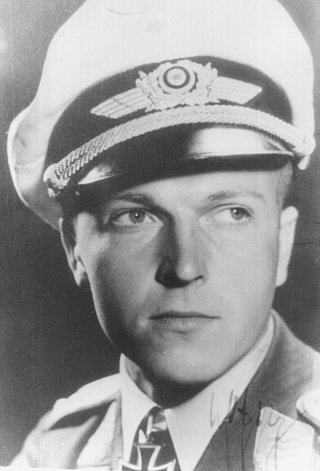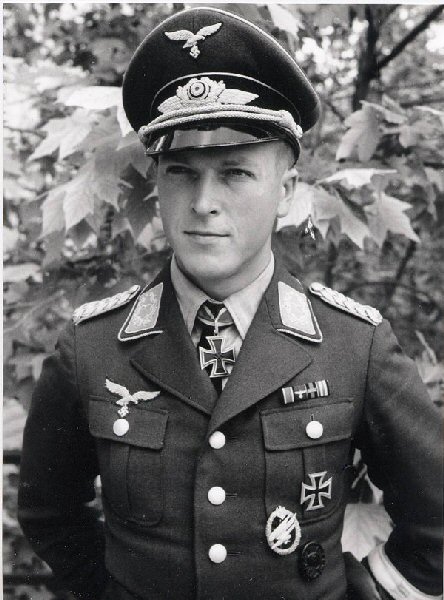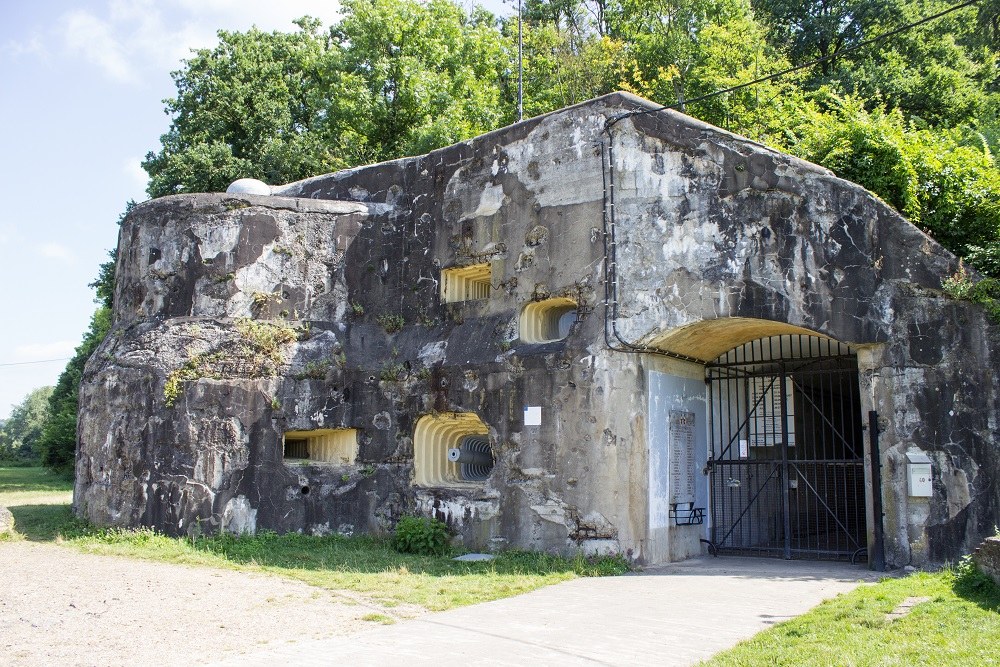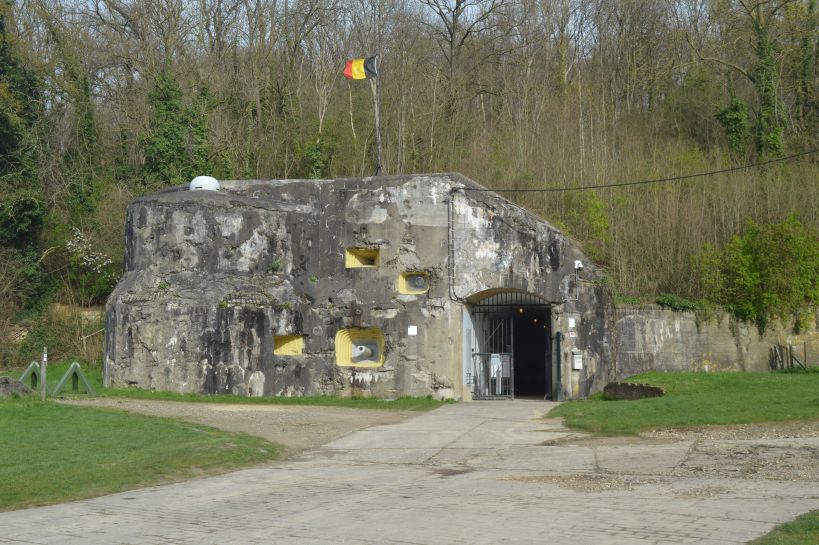Witzig, Rudolf
- Date of birth:
- August 14th, 1916 (Röhlinghausen/Westphalia, Germany)
- Date of death:
- October 3rd, 2001 (Oberschleißheim/Bayern, Germany)
- Nationality:
- German
Biography
Promotions:
April 1st, 1935: Offiziersanwärter;
April 20th, 1937: Leutnant;
July 1939: Oberleutnant;
May 16th, 1940: Hauptmann;
August 24th, 1942: Major;
?: Oberst (Bundeswehr).
Career:
April 1st, 1935: Pionier-Battailon 16, Höxter;
August 1st, 1938: Fallschirm-Infanterie-Bataillon (Major Richard Heidrich);
January 1st, 1939: II. Kompanie, Fallschirmjäger-Regiment 1;
July 1939: Chef, Pionierzug, Fallschirm-Sturm-Abteilung "Koch";
May 1940: Kommandant Sturmgruppe "Granit";
?: Führer, 9. Kompanie, Luftlande-Sturm-Regiment;
May 10th, 1942: Führer, Fallschirm-Korps-Pionier-Battalion;
June 14th, 1944: Kommandant, I. Bataillon, Fallschirm-Pionier-Regiment 21;
December 16th, 1944: Kommandant Fallschirm-Jäger-Regiment 18, 6. Fallschrimjäger-Division;
?: Stab, Pionierschule (Bundeswehr);
1974: Retirement.
As commander of Sturmgruppe Granit (Assaultgroup Granite), Witzig took part in the storming of Fortress Eben-Emaël in Belgium on May 10th, 1940. Sturmgruppe Granit was to land on top of the fortress in gliders. The glider containing Trupp 11 (Section) and Rudolf Witzig encountered problems with its tow cable and was forced to return to Germany. Witzig joined his men three hours later after having arranged alternative transport. May 16th, 1940, all soldiers who had participated in the attack were promoted to the next higher rank, Witzig attaining the rank of Hauptmann.
During Operation Mercury, the invasion of the island of Crete, Witzig was in command of 9 Kompanie/III Luftlande-Sturm-Regiment (Airborne Assault Regiment) and landed in the Maleme area. He was injured during the fighting and was transferred to the Luftwaffe hospital in Athens and later on to various other hospitals.
From November 1942 onwards, Witzig and his batallion served in Tunisia, being attached to Luftwaffe Regiment Barenthin under Oberst Von Manteuffel, General Von Broich and General Bülowius. The batallion lent assistance on the defense line in the northern sector of Tunisia where Witzig's name would be closely tied to the succesfull defensive actions. Finally, the survivors of the batallion were pulled out of North-Africa prior to the general surrender in May 1943.
JAs Commander of I./Fallschirm Pionier Regiment 21 he then came into action inJuly 1944, in Lituania. The individual companys took up positions in open field near the road between Dunaburg and Kovno and settled down to wait for the Soviet advance. July 26th, the Soviets attacked with a strong armoured regiment. It would be the fiercest battle the batallion would participate in and the losses were severe. However, they inflicted heavy casualties on the enemy as well, knocking out no less than 27 enemy tanks. Finally they were forced to relinguish their positions and retreat towards eastern Prussia.
As Commander of Fallschirmjäger-Regiment 18, Witzig between February and March 1945, bitterly contested superior British and Canadian forces in the Reichswald (State Forest) and retreated in March to defend the river Rhine. Allied armour pushed them even further back into Germany. Finally, Witzig and the other survivors surrendered to the Allies May 8th, 1945.
Do you have more information about this person? Inform us!
- Period:
- Second World War (1939-1945)
- Rank:
- Oberleutnant (1st Lieutenant)
- Unit:
- Sturmgruppe "Granit", Fallschirm-Sturm-Abteilung "Koch", 7. Flieger-Division, Luftwaffe
- Awarded on:
- May 10th, 1940
- Awarded for:
- Operation Fall Gelb
Führer
- Period:
- Second World War (1939-1945)
- Rank:
- Oberleutnant (1st Lieutenant)
- Unit:
- Sturmgruppe "Granit", Fallschirm-Sturm-Abteilung "Koch", 7. Flieger-Division, Luftwaffe
- Awarded on:
- May 10th, 1940
- Awarded for:
- Operation Fall Gelb
Führer
- Period:
- Second World War (1939-1945)
- Rank:
- Oberleutnant (Flying Officer)
- Unit:
- Sturmgruppe "Granit", Fallschirm-Sturm-Abteilung "Koch", 7. Flieger-Division, Luftwaffe
- Awarded on:
- May 10th, 1940
- Awarded for:
- Operation Fall Gelb
“Hauptmann Rudolf Witzig distinguished himself through his brave and fearless conduct during the capture of Fort Eben-Emael, the strongest fortification of Lüttich. The Fort’s defenses were disabled using innovative combat methods, and the garrison was reduced to a state of harmlessness. After a Heer unit managed to make contact from the north following a tough battle, the garrison finally laid down its weapons. Hauptmann Witzig was awarded the Knight’s Cross on the very first day of the battle, and was also promoted to Hauptmann by the Führer.”
- Period:
- Second World War (1939-1945)
- Rank:
- Oberleutnant (1st Lieutenant)
- Unit:
- Sturmgruppe "Granit", Fallschirm-Sturm-Abteilung "Koch", 7. Flieger-Division, Luftwaffe
- Awarded on:
- May 11th, 1940
- Awarded for:
- Operation Fall Gelb
- Period:
- Second World War (1939-1945)
- Awarded on:
- October 18th, 1941
- Period:
- Second World War (1939-1945)
- Awarded on:
- November 12th, 1942
- Period:
- Second World War (1939-1945)
- Awarded on:
- January 6th, 1943
- Period:
- Second World War (1939-1945)
- Awarded on:
- August 1st, 1943
- Period:
- Second World War (1939-1945)
- Rank:
- Major
- Unit:
- Korps-Fallschirm-Pionier-Bataillon, XI.Flieger-Korps, Luftwaffe
- Awarded on:
- October 17th, 1943
Kommandeur
- Period:
- Second World War (1939-1945)
- Rank:
- Major
- Unit:
- I./Fallschirm-Pionier-Regiment 21, Luftwaffe
- Awarded on:
- August 8th, 1944
- Period:
- Second World War (1939-1945)
- Rank:
- Major
- Unit:
- Kommandeur I./Fallschirm-Pionier-Regiment 21, Luftwaffe
- Awarded on:
- November 25th, 1944
- Period:
- Second World War (1939-1945)
- Period:
- Second World War (1939-1945)
- Period:
- Second World War (1939-1945)
- Period:
- Second World War (1939-1945)
- Period:
- Second World War (1939-1945)
Sources
- Photo: Major Plm
- - Die Ordensträger der Deutschen Wehrmacht
- Kurowski F., Knight’s Cross Holders of the Fallschirmjäger, Schiffer Publishing Ltd., USA, 1995
- Williamson G., Knight’s Cross and Oak-Leaves Recipients 1339-40, Osprey Publishing, Great Britain,2004
- Helden der Wehrmacht II, Sammelband (Miscellany), FZ-Verlag GmbH, München, Deutschland, 2003
- Fallschirmjäger 1936-1945




















